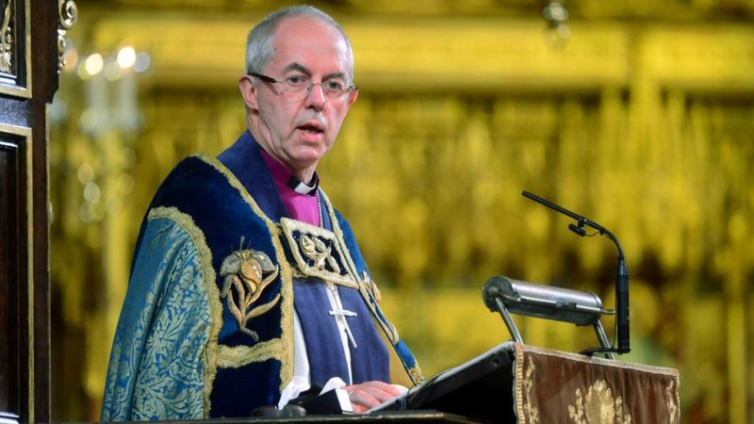Archbishop of Canterbury Justin Welby has warned Boris Johnson against cutting the UK's overseas aid budget.
The government wants to reduce the annual spend from 0.7% of national income to 0.5%.
But Mr Welby said "helping the world's poorest is one of the great moral and ethical achievements of our country".
Archbishop of Canterbury: Justin Welby warns against foreign aid cut https://t.co/ao0myyacVQ
— Ursula Buston (@Ursulabuston) November 22, 2020
The archbishop, who will take a three-month sabbatical in May next year, said any recovery from the pandemic required "a global response".
"In his teaching, Jesus Christ tells us we mustn't limit our concept of neighbour simply to those close by to us. We need to heed that message in the tough times, as well as the good.
"Keeping our aid commitment is a strong signal that the UK is a reliable partner for long-term economic, social, environmental and educational advancement across the globe," the archbishop said.

Reports earlier this week that the government was considering cutting £4bn from the overseas aid budget have met strong resistance.
In recent days, 185 charities, two former prime ministers, opposition parties and senior Tories have all urged the government to think again.
Microsoft founder Bill Gates is the latest public figure to call on the British government to protect the foreign aid budget at next week's spending review.
"It's never made less sense to cut foreign aid than right now," said the billionaire philanthropist.
"Covid-19 has reminded us viruses don't respect border laws; they don't check your passport before entering your lungs. The only way the UK - or any country - will be free of this virus is if every country is.
"This is a moment when what's good for the world - and what's good for the UK - are exactly the same thing."
Spending on foreign aid is linked to the UK's national income - its GDP - which has been badly impacted by the pandemic.
The government has already announced a £2.9bn cut from the budget for the rest of 2020 in order to avoid over-shooting the 0.7% target.
The 0.7% target, initially proposed by the United Nations in the 1970s, was first adopted in the UK by Tony Blair's Labour government in 2005. However, it was not actually reached until 2013 - under the coalition government, led by David Cameron.
Latest Stories
-
Bawumia slams NDC, says they’ve told a lie by introducing ‘dumsor levy’ after removing E-levy
2 minutes -
Explainer | Can the restructured energy sector levy solve Ghana’s power crisis?
13 minutes -
The case for Ghana’s new energy sector levy
16 minutes -
Dr Matthew Opoku Prempeh confirms NIB interrogation over his tenure as Education Minister
17 minutes -
Minority vows to resist rerun Ablekuma North, demands immediate conclusion of election results
23 minutes -
Joyce Annor Yeboah appointed Deputy General Manager of Juventus Academy Ghana, SMAC SC, and SMAC Sports Center
23 minutes -
Ghana Water Limited to prosecute over 800 illegal water users in Accra West
31 minutes -
Yaw Nsarkoh speaks: Iniquities of Inequity in Our Santa Claus Democracy
39 minutes -
Continue to advance technical, professional knowledge with high industry impact – Deloitte Audit Partner to KSB
1 hour -
Afreximbank to expand continental investments, targets $2.5bn medical tourism gap
1 hour -
Ghana’s Dr. Delese Mimi Darko elected first Director-General of African Medicines Agency
1 hour -
Bryan Acheampong urges unity in NPP as he awaits committee report on his political future
1 hour -
Victory over Trinidad and Tobago will lift Black Stars confidence – CK Akonnor
1 hour -
Daily Insight for CEOs: Positioning your business to move faster than the market
2 hours -
New Fuel Levy in Ghana: A solution to energy woes or a blow to citizens?
2 hours

